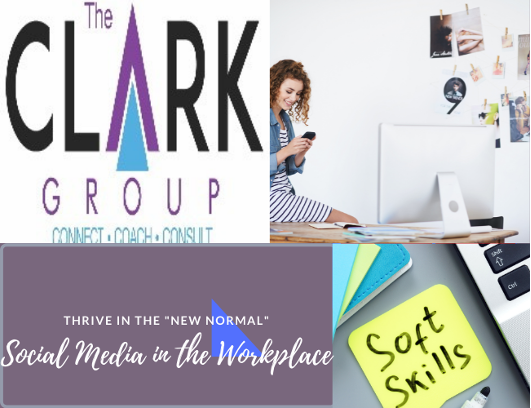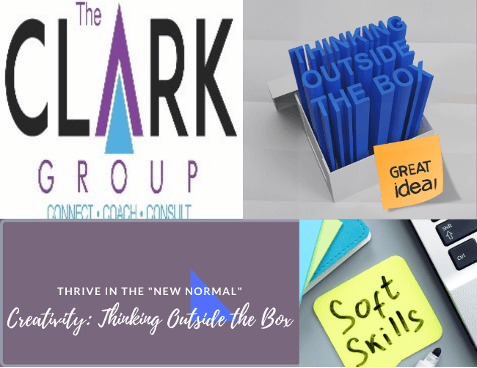Blog
Blog
Corporate Training Solutions

29 Jun, 2021
5 Ways to Achieve Work-Life Balance for Happier and Healthier Employees We all take on different roles in our personal and professional lives. Think about it. What titles do you take on in your everyday life? Some may include: · Employee · Trainer · Leader · Partner · Parent (to a child or a furry friend) · Friend The list goes on and on. And sometimes, trying to balance it all can feel like drinking out of a firehose. So how do we do this? The key is to achieve work-life balance. I doubt this is your first time hearing the term. But what exactly does work-life balance mean, and what actionable steps can we take to help ourselves and our teams achieve it? What started as a trendy concept in the corporate world has become a highly valued factor that younger generations strongly consider when accepting - and leaving - jobs (Millennials and Gen Z, I’m looking at you). 59% of millennials report feeling worried about finding a career path that will support the lifestyle they hope to live, and Millennials will comprise more than one of three adult Americans by 2020 and 75 percent of the workforce by 2025. If you consider this, work-life balance has never been more important for talent attraction and retention. Not to mention reducing stress and burnout in the workplace, making for happier and more productive employees. By implementing work-life balance, it is important to look at the big picture of an individual, rather than simply see them as an employee. Below are some strategies that have worked for us at CTM and many other companies to help employees achieve work-life balance.

29 Jun, 2021
Using Social Media to Boost your Professional Development: Dos and Don’ts Now more than ever, it has never been more important to use the internet to work on your professional development. The power of social media has made it possible to network and recruit with just a few taps on a smart phone. It has never been easier to display your personal brand to millions of people. But how do we leverage this? Below is our top 5 Dos and Don’ts for using social media to boost your professional development.

16 Jun, 2021
Seth Rozee – a Senior Account Executive with 10 years of experience selling into the courseware and training industry joins our blog today with his guest post on his tips for successful selling. The sales department plays a crucial role in the success of any business. The role of sales is to recognize the needs of potential customers and connect them to the product or service the company offers. Sales plays a major role in influencing the success of your organization. It requires building strategic relationships with customers, strong product knowledge, and experience. Below are our top ten sales secrets to increase your organization’s revenue and meet your goals. 1. DEVELOP THE TRAITS OF AN EXCELLENT SALES REPRESENTATIVE Anyone can be a strong salesperson. However, there are various traits that are highly beneficial to be mindful of when working in sales. Assertiveness is one of these traits. Being assertive has four main components. These include calmness, positivity, enthusiasm, and honesty. Assertiveness is a balancing act for salespeople because it is important to not be too aggressive or pushy, but a good salesperson must also be able to draw in customers with confidence. Furthermore, strong sales representatives require emotional intelligence. Being able to identify, control, and manage emotions is crucial for stressful situations that can come up working in sales. This can also mean being able to solve problems on the fly and remain adaptable.

16 Jun, 2021
Soft skills are a crucial part of what makes a strong employee in any organization. Soft skills impact how we communicate with colleagues, problem-solve, and are a contributing factor to the long-term success of your organization. After extensive research, psychologist and author Dan Goleman concluded in his book Emotional Intelligence at Work that when IQ and technical skills are similar, soft skills such as emotional intelligence account for 90% of what makes people move up the success ladder. Below are our top ten Soft Skills you should be training your team in to boost their personal and professional development

16 Jun, 2021
Good leadership at the forefront of an organization can have a major influence on its success for the individuals working there and the company as a whole. It can be easy to assume that certain people are simply naturally good leaders, and while that may be true sometimes, leadership skills can in fact be taught, built, and improved upon overtime. Leadership has had a variety of different definitions over the years. Forbes defines leadership as “A process of social influence, which maximizes the efforts of others, towards the achievement of a goal”. Furthermore, BNET online Business Dictionary defines leadership as “The capacity to establish direction and to influence and align others toward a common goal, motivating and committing them to action and making them responsible for their performance.” Through many different studies and definitions of leadership, we have seen that there are a variety of attributes and abilities that can make a good leader. When a leader truly cares about what they are working towards, their strong leadership skills will shine through. The more experience you have acting as a genuine leader, the easier it will get. Taking the lead isn’t always easy, as you will be looked to make difficult decisions and navigate challenges, but it can also be very rewarding and to your organization and yourself. Below are the top five skills corporate leaders should have.
Personal Growth

29 Jun, 2021
THINKING OUTSIDE THE BOX: HOW TO CULTIVATE A CREATIVE WORKPLACE With all the structured systems and procedures in place at your organization, it can be easy to let creativity fall by the wayside in a corporate setting. But the truth is, creativity is crucial to having your workplace function optimally. Creativity promotes innovations and brings new ideas into your organization that can save time and bring prosperity. Below is our quick guide to thinking outside the box and cultivating a creative workplace. CREATIVITY IN THE WORKPLACE: MYTH BUSTING First things first, there are many misconceptions that cause people to hold back on creative potential solutions. To set the record straight, below are some of the most common myths about creativity in the workplace – busted. Myth #1: “Creativity is an inherited trait.” People often believe that creativity is a genetic trait with which you either have or don’t have. This is an extremely common misconception. Everyone has the ability to be creative, and by believing that you are not born creative, you hold yourself back from discovering your full potential. When you let go of this myth, you may even surprise yourself with the ideas that can emerge. Myth #2: “Creativity is only for people in artistic careers.” Creativity is often thought of to be exclusively linked to artistic expression. Art cannot exist without creativity, but this is also true in the context of business growth and innovative solutions. Creativity is often initially undervalued in fields of study that are not focused on artistic expression, but it is a critical skill required for any organization to grow. A business requires new strategies and products to succeed, which is not possible without creative processes. Myth #3: “Creative ideas are only thought of and executed by one individual.” When reflecting on historical breakthrough inventions, this work is commonly accredited to one individual. Creative developments are rarely generated by one person. Most breakthrough creations come from a team effort that requires the diverse knowledge of a collection of individuals. This myth disregards collaborative and supportive efforts that are collectively put together by a team. Myth #4: “Creative ideas only come from one ‘Breakthrough Moment.’” It is often believed that the best breakthrough moments happen from a flash of inspiration, or unexpectedly. The truth that breakthroughs stem from information in the early preparation stages of the creative process that remain in the subconscious mind. That “breakthrough moment” actually comes from an extended process of knowledge being gathered, and goals being set. Myth #5: “Financial Incentives will make my team more creative.” The idea that bigger incentives will increase motivation and creativity is incorrect. In fact, financial incentives will typically lower creativity and lead to more harm than good. However, if you are hoping to motivate your team to think creatively, there is a strong link between intrinsic motivation and increased creativity. When there are no external pressures, it’s easier to be absorbed in your work instead of being focused on money or praise as an outcome. FOLLOWING THE CREATIVE PROCESS

29 Jun, 2021
YOUR QUICK GUIDE TO ANGER MANAGEMENT IN THE WORKPLACE Anger is complex and often a misunderstood emotion that goes beyond simply being mad. Anger is a natural response that follows a pattern of phases, and can transpire from many factors, including other hidden emotions. Anger Management training in the workplace can help employees increase their self-awareness and self-management when it comes to anger. This can positively contribute to employee morale, conflict resolution, and creating an overall improved workplace culture. MYTH BUSTING: COMMON MYTHS ABOUT ANGER, DEBUNKED Anger in a complicated emotions that brings up many different associations and assumptions in people’s minds. For clarity, below is some common myths about anger, debunked: “Anger needs to be ‘unleashed’ for it to go away.” - It’s true that anger needs to be expressed to relieve symptoms. However, expressing anger in verbally or physically aggressive ways is not the only way to ‘unleash’ anger. Nor is anger an excuse for a person to be aggressive. The expression of anger can be tempered by rationality and forethought. Venting anger does not necessarily result in the anger disappearing, although venting can relieve the symptoms. At times, processing personal experiences, seeing concrete change and genuine forgiveness are needed for anger to go away. “Ignoring anger will make it go away.” - Generally, all kinds of emotions do not disappear when ignored. The anger just gets temporarily shelved, and will likely find other ways of getting expressed. It can get projected to another person, transformed into a physical symptom, or built up for a bigger future blow up. Some of our behaviors may even be unconscious ways of expressing anger. While there are situations when it’s inadvisable to express your anger immediately, the very least you can do is acknowledge that it exists. “You can’t control your anger.” - This myth is related to the second one. As discussed earlier, the fight and flight instinct can make anger an overwhelming emotion. However, this instinct does not mean that you’re but a slave to your impulses. Awareness of anger dynamics and a conscious effort to rise above your anger can help you regain control of your reactions. “If I don’t get angry, people will think I am a pushover.”’- It’s true that a person can lose credibility if they make rules and then ignores violations. However, anger is not the only way a person can show that there are consequences to violations. In fact, the most effective way of instilling discipline in others is to have a calm, non-emotional approach to dealing with rule-breakers. Calm and rationality can communicate strength too. GETTING TO THE ROOT OF THE ANGER Anger is a normal response that is often experienced as a secondary emotion. This concept can be represented with the Anger Iceberg. The Anger Iceberg illustrates the idea that emotional reactions are not always one-dimensional, rather there are many hidden causes. Although anger may be presented and expressed on the outside, there are other underlying emotions that give energy to this anger.

15 Jun, 2021
Networking goes beyond drink tickets and hors d’oeuvres in a conference room. The term itself refers to any act of maintaining a personal and professional contact list that you can use to help further your career. Basically, anyone who you could potentially turn to for professional assistance or guidance. With this definition in mind, how do you feel about the state of your current network? Are you feeling pretty secure in its size and scope, or could it use some broadening? #success #successful #entrepreneurlifestyle #entrepreneurlife #mentorship #entrepreneurs #leadershipdevelopment

15 Jun, 2021
“Whatever you’re feeling, it will eventually pass. You won’t feel sad forever. At some point, you will feel happy again. You won’t feel anxious forever. In time, you will feel calm again. You don’t have to fight your feelings or feel guilty for having them. You just have to accept them and be good to yourself while you ride this out. Resisting your emotions and shaming yourself will only cause you more pain, and you don’t deserve that. You deserve your own love, acceptance, and compassion.” -Lori Deschene Sign Up For My Newsletter, https://clarkgroupcoach.leadingthebest.com/JMTN0003 . #personalgrowth #selfcare

15 Jun, 2021
When you’re communicating with someone who isn’t showing a lot of compassion toward you, do your best to stay positive and avoid sinking down to their level. While it may be tempting to respond with something snarky, try and remind yourself that you don’t know their intention or situation, so try not to take anything personally and remain kind and compassionate whenever possible.

15 Jun, 2021
If you dedicate time and effort to getting to know your peers in your workplace, you’re setting the groundwork for potential opportunities down the road! Supervisors can help you write letters of recommendation, managers can give you inside information about new positions opening up, and coworkers can refer you to their new employer. #success #successful #entrepreneurlifestyle #entrepreneurlife #mentorship #entrepreneurs #leadershipdevelopment
Want more information?
Contact Info
© 2024
All Rights Reserved | The Clark Group



